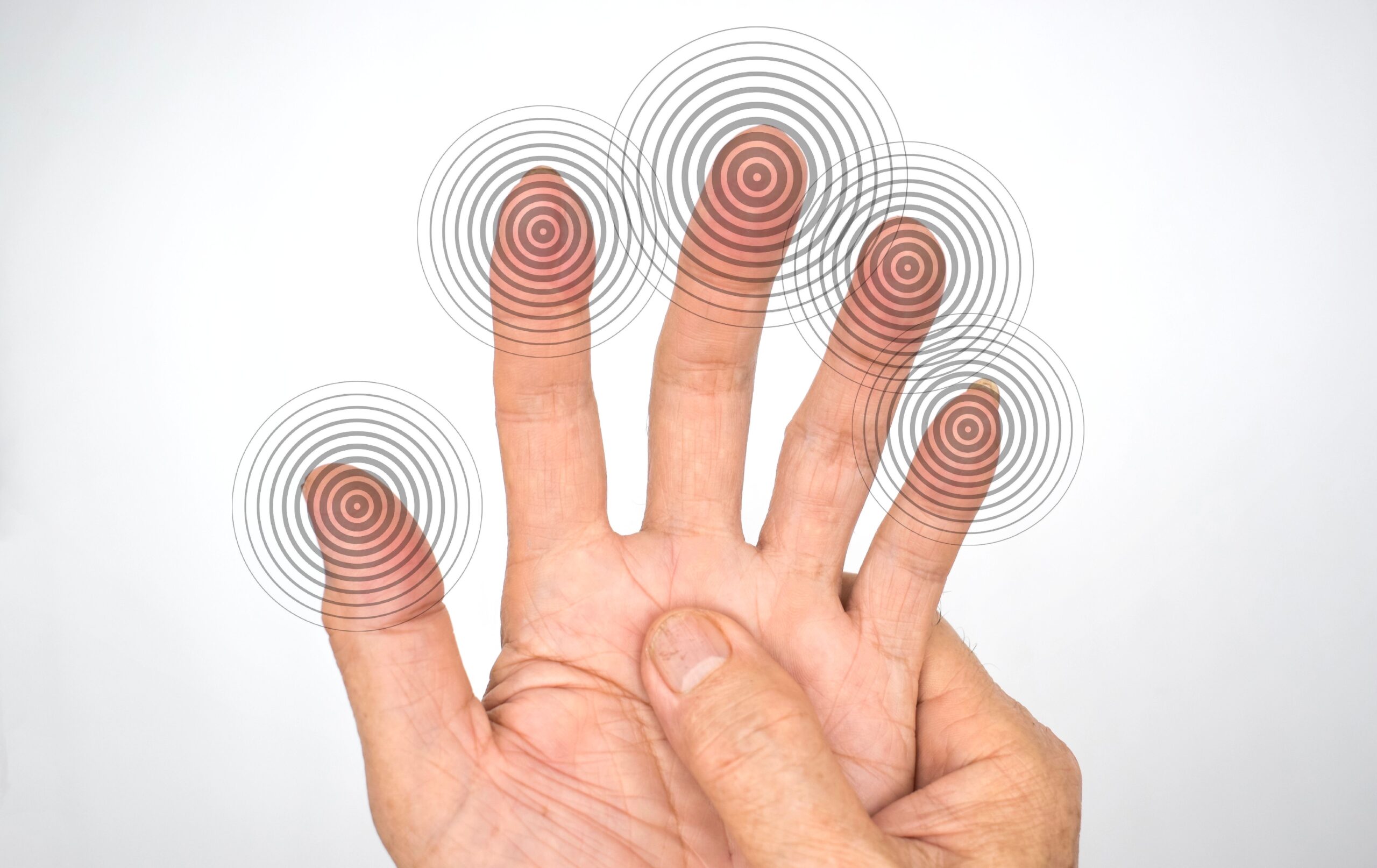Numbness occurs as a side effect of cancer treatments. It is often accompanied by tingling, and feelings of pins or needles in the hands and feet. This side effect is termed Peripheral Neuropathy. It may lead to partial or complete lack of sensation in one or more body parts, especially the hands, feet, arms, or legs.
Chemotherapy is mostly used to kill cancer cells. But it can also affect nerves that connect the spinal cord to muscles, skin, and internal organs resulting in Peripheral Neuropathy. It is a neurological side effect of certain cancers and cancer treatments, especially chemotherapy. This condition is referred to as Chemotherapy-induced peripheral neuropathy (CIPN).


Patients with pre-existing diabetes, alcoholism, severe malnutrition, kidney impairment, autoimmune diseases, infections, carpal tunnel disorder (numbness and tingling of hand and arm caused by a pinched nerve in the wrist), and previously treated with chemotherapy are at higher risk of neuropathy.
Depending on the type of chemotherapy drugs and dosage, symptoms of peripheral neuropathy vary widely from patient to patient. Certain types of chemotherapy affect the small sensory nerves in the feet and hands, causing symptoms like numbness, tingling, and pain. Sometimes, chemotherapy can also cause weakness, muscle cramps, and muscle fatigue.
In most cases, peripheral neuropathy affects fingers and toes, and the bowel resulting in constipation or intestinal obstruction. In very few cases, it affects the face, back, and chest. Less common symptoms include dizziness when sitting or standing up, difficulty urinating or defecating, blood pressure changes, or irregular heartbeat.
The signs and symptoms of peripheral neuropathy appear suddenly and grow gradually. It may worsen with each additional dose of chemotherapy. The symptoms are higher after 3 – 5 months of the last session of chemotherapy. It may require several months for symptoms to disappear completely or partially. Very rarely, it may be irreversible and never disappear.
Let your treating team know if you are facing any unusual symptoms, unrelieved pain, or persistent constipation despite medication use. There are many other ways your physician can recommend to treat neuropathy. A single regimen doesn’t work for all. Ask your doctor what measures to follow to reduce the effects of neuropathy. Your treating team will prepare a regimen that suits you best.
To provide the proper treatment your doctor will ask about your medical history, any other medications you are taking, vaccinations, and lifestyle habits that might increase the risk. Your doctor will order blood tests, and screenings to identify the cause of your symptoms. Also, look after the functioning of your nerves with imaging tests like X-rays, MRIs, or CT scans. Sometimes, a spinal tap is suggested to check for problems in the nervous system.
The trained doctors together are involved in developing a personalized treatment plan for each patient to treat Peripheral neuropathy. Here are a few measures that your doctor might follow;
Contact your doctor right away if your symptoms of neuropathy;
Add the below questions to your list for your visit with the doctor:
కీమోథెరపీ కోసం క్యాన్సర్ రోగులు ఎలాంటి దుస్తులు ధరించాలో తెలుసా? ఈ ఆర్టికల్లో, క్యాన్సర్ రోగులకు కీమోథెరపీని సౌకర్యవంతంగా పొందడంలో సహాయపడే దుస్తుల జాబితాను అందించాము.
ఈ కథనం మీ క్యాన్సర్ రకానికి సరైన క్యాన్సర్ వైద్యుడిని కనుగొనడానికి 6-దశల గైడ్ను వివరిస్తుంది.
तंबाकू का सेवन गुटका, जर्दा, पैन मसाला आदि के रूप में करना सिर और गले के कैंसर का मुख्य कारण…
నోటి పుండ్లతో బాధపడుతున్న క్యాన్సర్ రోగులకు క్యాన్సర్ చికిత్సలో ఉన్నప్పుడు తీసుకోవాల్సిన 12 ఉత్తమ ఆహారాలు.
క్యాన్సర్కు కారణమయ్యే 6 జీవనశైలి కారకాలు గురించి ఈ కథనంలో వివరంగా ఇవ్వబడ్డాయి. అవి ఏమిటో తెలుసుకోండి!
शोध की मानें तो न्यूज़पेपर प्रिंट करने में जो स्याही का इस्तेमाल होता है उसमें ऐसे केमिकल होते हैं जो…